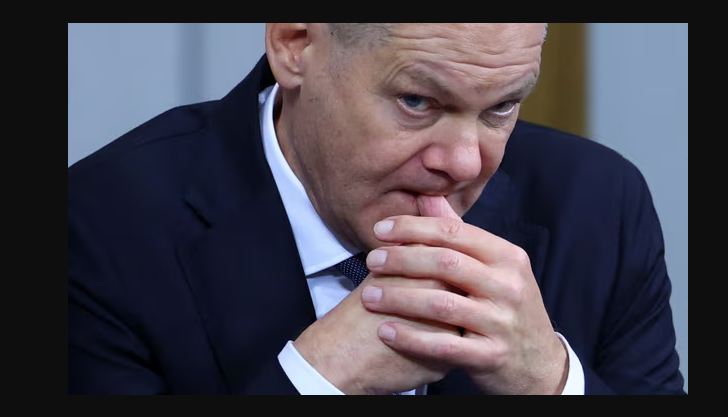German Chancellor Olaf Scholz loses confidence vote
When German Chancellor Olaf Scholz did not receive a vote of confidence in the parliament, the way was opened for early elections on February 23.
Scholz predicted they would lose Monday’s vote, but calculated that calling early elections was his party’s best chance of reviving its political fortunes.
This decision came nearly two months after the collapse of Scholz’s tripartite coalition government; This collapse left the embattled chancellor with a minority government.
Ahead of Monday’s vote, Scholz said voters will now “determine the political course of our country” and that it will likely turn into a very contentious election campaign.
Losing Monday’s confidence vote was the outcome Scholz wanted.
Following this defeat, elections can be held in February, not in September as originally planned.
While 207 MPs, mostly from his own party, voted for Scholz, 394 voted against him and 116 abstained.
Since Scholz’s controversial three-party ruling coalition collapsed in November, he had remained dependent on support from opposition conservatives to pass new laws, effectively making his administration a failed government.
Given Germany’s stagnant economy and the global crises facing the West, stumbling forward until the election date in September 2025 risked being perceived as irresponsible by the electorate.
While Scholz’s Social Democratic Party (SDP) is lagging far behind in opinion polls, the conservative Christian Democratic Union (CDU) led by Friedrich Merz appears to be on track to return to power.
Speaking in the opening debate ahead of Monday’s vote, Scholz said the snap election was an opportunity to chart a new course for the country and called for “massive” investment, particularly in defence. Merz said more debt would be a burden on younger generations and promised tax cuts.
‘Kamikaze’ movement
Scholz’s decision to dissolve his own government in a referendum he expected to lose was described as a “kamikaze” move by the German tabloid newspaper Bild; but this is generally seen as the only way for a German government to dissolve parliament and call early elections.
This process was specifically designed by the post-war founders of modern Germany to avoid the political instability of the Weimar period.
This vote of confidence is not a political crisis per se: it is a standard constitutional mechanism that modern German chancellors have used five times to break political impasse – Gerhard Schröder used it twice.
But there is a deeper problem in German politics.
On the surface, the collapse of the coalition resulted from a disagreement over money. Scholz’s center-left SDP and its Green partners wanted to ease Germany’s strict debt rules to provide support for Ukraine and major infrastructure projects.
This was blocked by Scholz’s finance minister, Christian Lindner, and leader of the business-friendly liberal Free Democratic Party (FDP), which prioritized reducing debt.
Lindner was dismissed and the coalition collapsed. After years of humiliating strife, you could almost hear sighs of relief in Berlin’s corridors of power – but the underlying cause is harder and more worrying to unravel.
Germany’s party political system has become more fragmented, with more parties in parliament than ever before.
